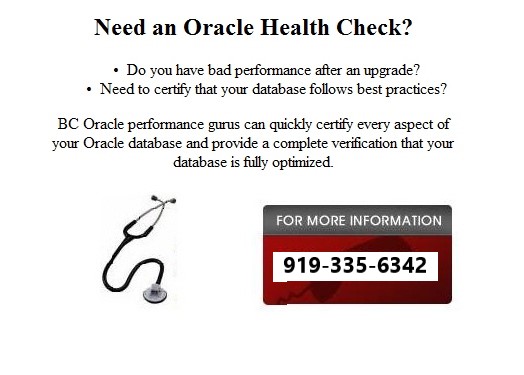| |
Microsoft
Announces New Shell Programming Language
September
30, 2004
Mark Rittman
Monad : Microsoft's .NET Answer To BASH and KSH?
One of the more interesting features coming with Microsoft
'Longhorn' is Microsoft Shell, a.k.a. 'MSH' or by its codename
'Monad'. Monad is a Unix-like command shell for Longhorn that aims
to be as interactive as KSH or BASH, as programmable as Ruby or Perl,
but with an object orientated base in Microsoft .NET. This
blog posting by Wesner Moise sums it up well:
"Microsoft is introducing a new command-line shell,
codenamed Monad, into Longhorn. If you have a Longhorn build, you
can use the new shell by launching "msh.exe."
The Good
New-style commands (or commandlets, as they are called in
Longhorn) are .NET libraries (plus associated .msh or .cmdlet
file) that consist of classes driving from CmdLet. Through the
magic of reflection, Monad performs all the parsing and validation
of switches and maps them to properties of your new class.
Attributes are used to indicate whether properties are mandatory,
optional, or produce prompting if omitted. Monad also will
eventually support Intellisense and help for cmdlets.
Commands can output .NET objects not just text. For example, you
can enter
get/process | where "handlecount
-gr 400" | sort handlecount | format/table
processname,handlecount
You get:
ProcessName HandleCount
---------------- ---------------
processname handlecount
... ...
Get/Process returns a sequence of process objects, which is
filtered to include only those processes with a HandleCount
property exceeding 400, then sorted and formatted to show a table
of two columns. These objects are treated like records, and can be
output to various formats besides text, such as an Excel
spreadsheet.
Other notables: In addition to the standard input, output,
and error steams, there can be additional streams used by cmdlets
such as for verbose mode, progress status, and debug mode. Drives
can not just be mapped to the filesystem, but also to other
heirarchies like the registry database. The scripting language is
designed to be as powerful as Perl, as it includes typed
variables, functions, property accessors and method calls, and
associative arrays.
The Bad
The new shell, as it stands now, is not very usable as a
routine interactive shell, so, at least in this build, you'll
gravitate back to the familiarity and simplicity of cmd.exe.
Monad is not quite a superset of the XP cmd shell. You can
execute traditional commands as before, but the built-in commands
all behave different. For example, in the most basic of
operations, listing the current directory (ie, typing "dir")
produces the directory contents but in user-unfriendly manner. I
sure hope that the new shell undergoes usability testing, since
the new shell syntax is unfamiliar and does require learning."
I was reminded about Monad by a
recent posting by Adam
Barr (author of
"Proudly Serving My Corporate Masters", one of the best books on
the Microsoft developer culture) where Adam points out that a recent
set of powerpoint slides on Monad got
linked to on Slashdot.
What makes Monad particularly interesting (apart from the fact
that it's finally a decent shell for Windows) is that each of the
shell commands (known as "cmdlets" is in fact a .NET class - more
analogous to a .DLL than an .EXE - and you can pipe data between
objects using their published interfaces.
This slashdot posting by
Earlybird (56426) sums
it up well:
"Microsoft is doing something interesting and innovating.
The Unix world could use this.
Basically,
Monad formalizes in .NET the pipe interface between shell
programs. A pipe participant is just something that implements the
appropriate "commandlet" interface: it receives some input,
produces some output, maybe some errors.
However, in the case of Monad the input and output can be
anything, not just text. So in the example:
get-process | where "handlecount –gt 400" | sort handlecount |
out-chart processname,handlecount
The get-process command produces a sequence of processes;
where filters it based on an attribute; sort sorts on an
attribute, and out-chart produces a textual table of the filtered
output.
It's important that the input and output of these processes
are structures (actually, objects, but I don't want to tickle
anyone's prejudices about OOP). .NET knows at runtime about the
attributes these structures can have, so you can write apps that
manipulate a wide variety of object types: files,
metadata-annotated documents, log entries, whatever.
Naturally input/output can be pure text, allowing all the
traditional Unix commands such as grep.
Immediate benefit? If you have the right translator, there's no
need to munge text output using awkward tools like tr, cut, awk
and so on, just to get at the process ID column of ps or the URL
column of the Apache log file.
This is better than Unix shells."
Interesting stuff. In terms of it's significance, another poster
sums it up well with this the
comment: "I actually feel its kinda complementary to the Unix
shell environment. This looks more like VBA on steroids, the .NETized
version probably. Passing around structures has been done in MS
world for a long-time - excel sheet processing, macro viruses etc. I
think similar results can be achieved using DCOP/KDE or the GNOME
equivalent, probably KDE , GNOME hackers can comment on that."
You can
download the presentation here, read more
here, and if you're interested in trying Monad out on XP or 2000
you can sign up for a beta (guest ID "'mshPDC") at
http://betaplace.com.
|

|
|
|
|
